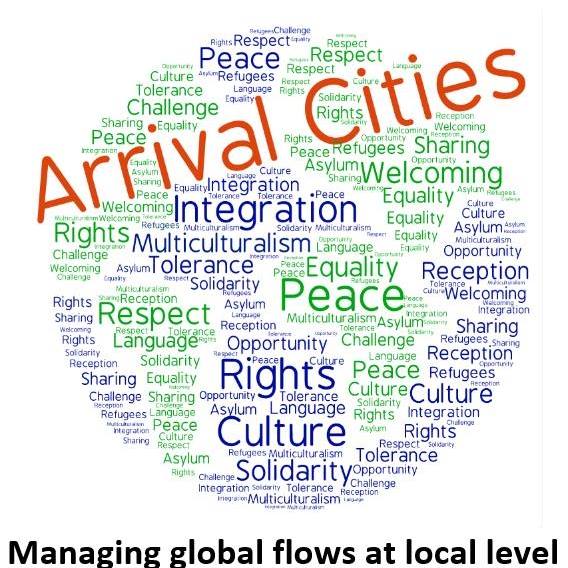Fiction and Art speak more clearly about the migration “crisis” than our democratic institutions
Edited on
02 October 2018If you had to sum up the year in a couple of words then “post fact” would be two words that symbolize this year. What source of information can you trust? Sure there are investigative journalists who provide a glimpse of the reality behind the façade that our institutional discourse generates. However on International Migrants day it is appropriate to highlight how fiction writers and artists are capturing what is going on. Here are some examples of what I mean.

Chris de Bode –Photographer
He produced a photographic story entitled “One meal a day: the Lake Chad Crisis”. It is a simple but powerful exhibition consisting of photos taken in the North of Cameroon. According to the Red Cross, the region is suffering from alarming food shortages, with many people in the extreme north of the
country getting by on one meal a day — a reality which Chris de Bode bears witness to in a series of photographs.
Here is one of his photos: A meal of ground red maize, white rice and crushed mango leaves, to be shared between Ramata Modou, 58, and her six children, aged between five and 16. This will be their sole sustenance for the day.
Jenny Erpenbeck- “Go, Went, Gone”
The story is about Richard, a retired German academic, whose privileged, orderly life is transformed by his growing involvement in the lives of a number of African refugees—utterly powerless, unaccommodated men, who have ended up, via the most arduous routes, in wealthy Germany.
One day in August, Richard happens to walk past a group of protesters in Alexanderplatz: “Their skin is black. They speak English, French, Italian, as well as other languages that no one here understands. What do these men want?” Where are these men from? “Where exactly is Burkina Faso? What is the
capital of Ghana? Of Sierra Leone? Or Niger?” He remembers that his mother used to read to him from “Hatschi Bratschi’s Hot-Air Balloon,” a children’s book with an illustration of a “cannibal boy” from somewhere in Africa. Could he really be no better informed as a retired professor than he was as a
child? So, in scholarly fashion, he begins “a new project,” and spends the next two weeks reading books and making a list of questions to ask the refugees.
The book highlights some of the underlying moral and value laden issues that our official discourse simply ignores. So for example, Richard is struck by the fact that the refugees are not allowed to work, but their presence has created “half-time jobs for at least twelve Germans thus far.” Why should we
have so much, Richard thinks on another occasion, and they so little? German postwar prosperity is generally attributed to hard work, native ingenuity, and fine organization. East Germans had little to do with this economic miracle, yet they are also the lucky beneficiaries. So, Richard wonders, “who
deserves credit for the fact that even the less affluent among their circle now have dishwashers in their kitchens, wine bottles on their shelves, and double-glazed windows?” He further reflects: “But if this prosperity couldn’t be attributed to their own personal merit, then by the same token the refugees weren’t to blame for their reduced circumstances. Things might have turned out the other way around.”
Valeria Luiselli: Tell Me How It Ends
This is an essay, based on Luiselli’s experience as an interpreter for undocumented child migrants crossing from Mexico into the US Trauma, exhaustion, youth and mistrust make it difficult to make sense of the children’s experiences as she tries to help them fill out the intake questionnaires and piece
together a defence against deportation.Most have lost friends and relatives; 80% of girls and women have been raped (US civilian vigilantes and private ranch owners are known to “go out to hunt” undocumented migrants). In this compelling, devastating book, Luiselli documents the huge injustices
done to the children by both the American and Mexican governments, and by the public who treat them as “illegal aliens”, rather than as what they truly are: refugees of war.
Bonobo-Migration
This is a music exploration of the theme of migration through use of global sounds: Bambro Koyo Ganda (feat. Innov Gnawa)
Author: Haroon Saad (Lead Expert)
 Submitted by cvestrini on
Submitted by cvestrini on
